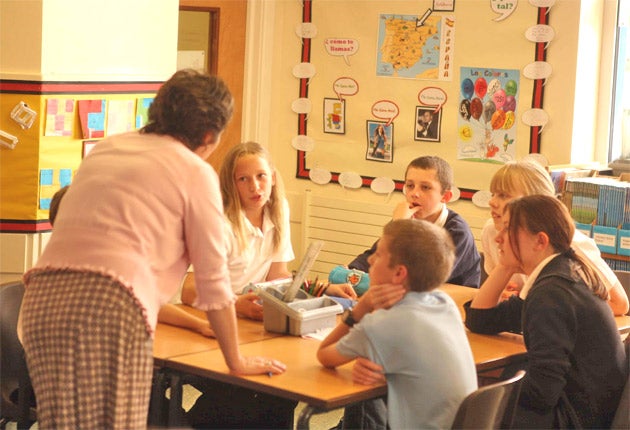Are universities still the best places to train our teachers?

Excellent teacher training is essential. However, the new austerity and the forthcoming Education White Paper are making the teacher education sector understandably nervous.
A possible scenario is that in the White Paper, Michael Gove will call for a shift in teacher training from being run by universities in partnership with schools to being mainly school-based. The school-university partnerships in this country are some of the most advanced in the world and schools are much more involved in teacher education than in many other countries. If the White Paper further strengthens the involvement of schools, and encourages more schools to take part in teacher education, we will support it. But we have concerns.
We would be concerned about any wholesale transfer of funding, and therefore accountability and responsibility, to schools because, first of all, the current system works well. Ofsted rates almost 85 per cent of Initial Teacher Training (ITT) provision as good or outstanding. A similar proportion of newly qualified teachers (from a sample of 14,000) say the training they receive is relevant and of high quality. A fundamental change to the structure of teacher education must not put this quality at risk.
What will schools think? There is already a mixed market in teacher education, with a number of school-based programmes such as Teach First and the Graduate Training Programme in place. We welcome this. Universities are involved in many of these alternative routes into teaching. But what about schools that are unwilling or unable to train teachers? Are they to have responsibility foisted upon them? Or will they not be able to recruit newly qualified staff? And will schools that treasure the relationships they have with universities over the training and ongoing professional development of their staff have to rethink the nature of those relationships?
Under the current funding arrangements, there is a direct link between the quality of training (as measured by Ofsted) and the number of student teachers each ITT provider is allowed to recruit. This has resulted in a year-on-year rise in the number of teachers trained by the top providers. This would not happen under a purely market-driven approach. The well-documented added value that university involvement in teacher education brings could vanish: student teachers would no longer have access to university infrastructure and support; they would lose the valuable time they have away from school to reflect and share experiences with those working in contrasting schools; there would be less scope to introduce new ideas (and Government policies) into schools through universities; and the link between ITT and high quality continuing professional development and research would disappear.
We will work with the Government to ensure moves to further embed the role of schools in teacher education work properly. But the proposals must be properly thought through and not driven by clichéd misconceptions about teacher education.
We welcome some of Michael Gove's proposals. We recognise the contribution that Teach First, in partnership with universities, is making. We support moves to raise the status of teaching through an increase in entry requirements, which will improve the perception of teaching as a profession. This could be supported by making it a master's-level profession. At the least, we must ensure teachers are entitled to structured early professional development that builds on and complements initial training.
We're holding our annual conference this week to bring together experts from across the world to discuss training teachers. We are looking forward to working with schools and the Government to meet challenges and capitalise on new opportunities.
James Noble-Rogers is executive director of the Universities' Council for the Education of Teachers. www.ucet.ac.uk
Join our commenting forum
Join thought-provoking conversations, follow other Independent readers and see their replies
Comments
Bookmark popover
Removed from bookmarks